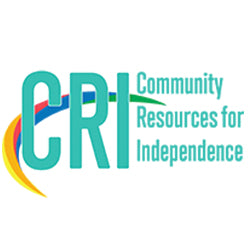Stress: The Good And The Bad
In our day and age, the word ‘stress’ has a negative connotation. Just ask anybody and they will have no problem describing what stress feels like. And, trust me, they won’t be telling you about the beautiful sunset they watched last night. It will sound more like this:
Stress is…
- “Being unable to fall asleep, because you can’t stop thinking of all your to-dos.”
- “Feeling so overwhelmed that you wonder if you’re ever going to feel relaxed again.”
- “Being so snappy and irritable, you’re starting to think you’re just not a nice person.”
But when stress wasn’t a popular buzzword yet, it meant something along these lines: “Stress is the non-specific response of the body to any demand for change.”
Now, that doesn’t sound too bad, does it?
Stress is often seen as synonymous for the word ‘distressed’, meaning “a physical, mental, or emotional strain or tension.” And so, stress has found itself in a negative light and it has never recovered.
Here are 3 benefits of stress that you probably didn’t know about:
-
You’ll become more resilient
Learning to deal with stressful situations makes it easier to manage stress in the future. Managing stressful events in a healthy way will give you a sense of physical and mental control that will help you later on. - It will motivate you to succeed
Diamonds are made under pressure. Sometimes, a little stress is just the thing you need to finish a project strong before the deadline. By viewing a deadline as a challenge you can take on and not as an insurmountable roadblock, you’ll manage the situation more effectively. - It gives your brain a boost
A moderate stress level triggers the production of neurotrophins in the brain. These chemicals strengthen the connections between neurons. Strong connectivity in the brain helps you to concentrate and be productive.
The key here is, of course, identifying good and bad stress. Because, you know what they say; too much of a good thing… The same goes for stress. If you’re experiencing long-term stress, it’s important to take steps to manage it. Using a healthy coping mechanism to deal with stress is essential to reduce the risk of negative health effects.
Here are the ways the iProven team copes with stress:
Sam: Content Creator at iProven HQ
“Getting out of my head is the best way for me to cope with stress. Instead of focusing on the never-ending loop of negative thoughts in my mind, I focus on a task I can perform with my hands. Chopping up veggies for dinner. Drawing or sketching. Using my hands makes me feel relaxed and grounded.”
Lily: Content Creator at iProven HQ
“Lifting weights is the best stress-buster for me. I need all my concentration to focus on form, breathing and lifting. The time I spend lifting a barbell or a dumbbell is my happy hour. It takes my mind off the negativity. Focus is critical, because I don’t want to injure myself. Plus, exercise produces endorphins and has all kinds of health benefits.”
Alize: Communication Specialist at iProven HQ
"For me, it helps to write down what’s on my mind. I have tons of notebooks at home and they’re all filled with pages of thoughts. I once read an article that journaling is an effective way to deal with stress. It helps to get insight in your complex feelings and put it into perspective. It can also help you process your thoughts or certain events."
If you’re overwhelmed by stress, ask for help from a health professional.










![iProven DMT-77 No-Touch Forehead Thermometer for Adults, Kids, Babies [Superior Accuracy, Upgraded Fever Alarm, Quiet Vibration Alerts] Digital Infrared Baby Thermometer with Ear Mode, Hypothermia Alarm](http://iproven.com/cdn/shop/files/AMI_DMT-77_image1_V3.3_MP_1_214x.jpg?v=1690531003)










